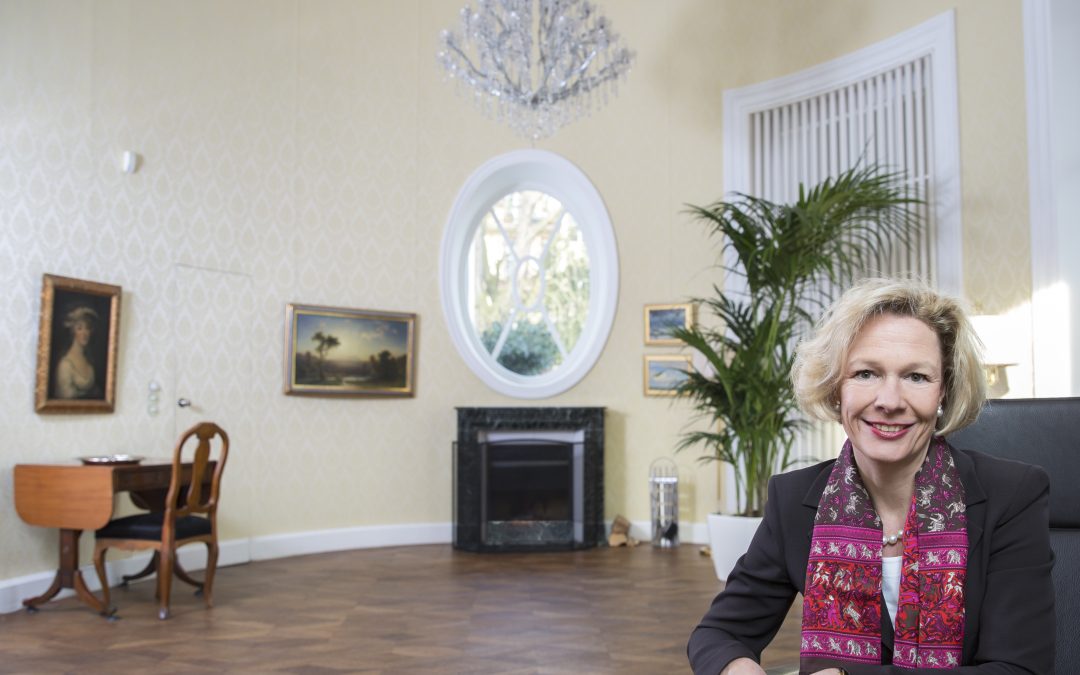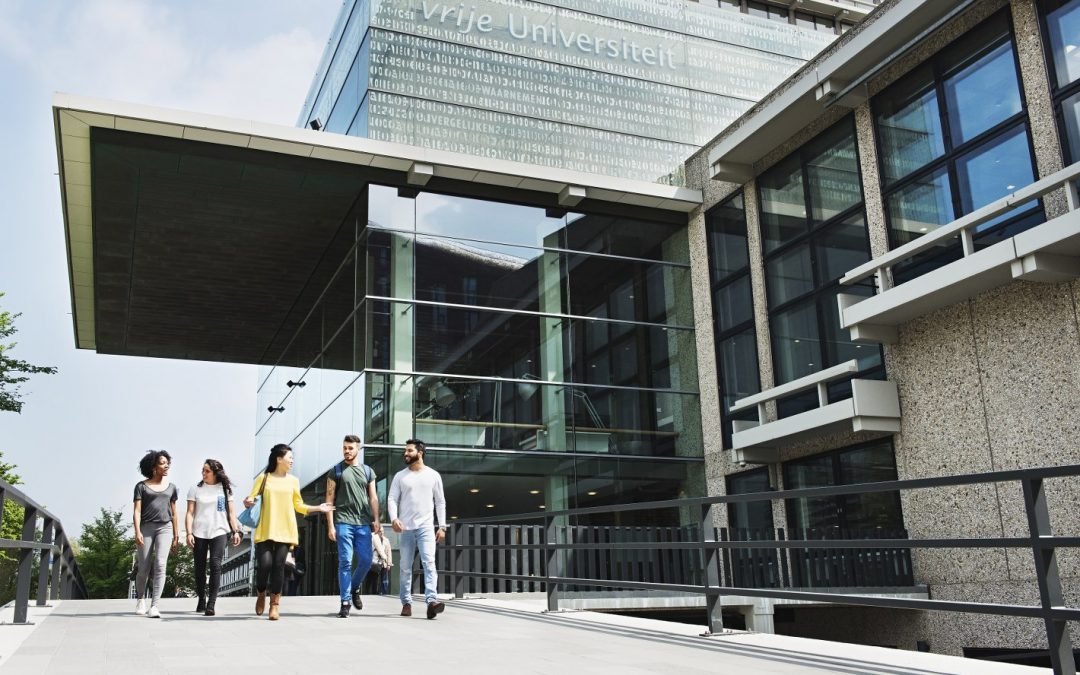
How does high impact executive coaching work?
High Impact Executive Coaching brings a different perspective
Imagine you are the CTO in the middle of a major transformation process around digitalization. And suddenly you realize that the company you work for has decided too late for this process. The owners are not ready, they are too old, they decided too late, and now you are in a shemozzle because the transformation is not working. It looks like the company will not survive.
What would most CTOs do? Please sit back and think for a moment.
To simplify: most likely, a CTO would first investigate the technical details, reanalyze what went wrong, state the obvious to his colleagues, perhaps argue for a moment with the owners, and finally explore whether and how to move forward. Downsizing might be a solution, but the owners do not want to think about it. They want to move forward without the transformation process. A year later the company goes bankrupt, and in the meantime the former CTO would have found a new job because CTOs are in demand, but at the same time most of the people in the company would have hated the CTO.
Too brutal? They would not leave the sinking ship? I think this is the reality in many family businesses.
What could High Impact Executive Coaching contribute?
We all know that digitalization processes are extremely challenging, complex, and still without a set of rules. Difficult decisions must be made and most likely unpleasant truths will be discovered. For many leaders, this is also personally challenging. My High Impact Executive Coaching will help you navigate these uncharted waters. And it will help you tackle unusual situations.
You may have asked me to work with you when you realized it was too late (example 2), or when you realized it was going to be more challenging than you thought, perhaps two years before the situation arose (example 1).
Example 1 – There is still time to do something
The situation is tough, you feel some discomfort and uncertainty, but you would never admit it to your colleagues. Many coaches would focus on the business aspects or teach you how to improve your communication skills. In High Impact Executive Coaching, we focus on you and what is happening under the carpet:
- We will begin to understand your behavioral and emotional patterns and explore the discomfort you were beginning to feel.
- We will think about the organization as a system and what kind of role you play in that system, perhaps you are seen as a black knight or as a savior?
- The next step will be to become more aware of the resistance in the system to this process – for example, you may discover the excuses, the overly rosy visions of the future, the emotional difficulties of the owners.
- Together we can complement your brilliant analysis of the technical issues with a focus on the human side and on you and your interaction with people.
- With the right attitude, good questions and a willingness to bring your colleagues on board, it may be possible to work together to find a way out of this difficult situation and convince the owners of a different plan.
I will help you understand the psychological barriers in yourself, within your colleagues and within the owners so that you will be able to overcome them
Example 2: Calling me when it is already (too) late to solve the problem
If you think that you have managed well so far, no mistakes from your side, it is only about the others, then I am probably not the right choice for you. But if you want to understand the whole picture, including yourself and your personal impact, then I am the right person to talk to. However, you would need some courage to face deep questions.
Now that the horse has bolted, we can only work on how to create a good ending and what we can learn – about you and the company. Something must have gone wrong, or the company would not have gone bankrupt.
- First, we focus on why you did not see reality as it was: at what moment did an avoidance emotional pattern kick in? What do you learn about your pattern? What could you do differently next time?
- What was the relationship with the owners, how did it develop? Why were you not able to be more convincing with the owners or your colleagues? What did you fail to consider or take care of? What do you learn about your own reactions? What could you do differently next time?
- Why was there so much resistance in the system? What was the resistance about? Why could you not resolve it? What was your role in it? What did you learn about your patterns? What could you do differently next time?
- We would also think about the pain, the experience of loss, of lost trust, of despair of the people who work for the company. The last thing you could do would be to design a process for leaving the organization without hatred or despair, and that takes those emotions into account and is honest about what has happened.
Does that make sense?
The aim of High Impact Executive Coaching
High Impact Executive Coaching focuses on you as a unique person in a challenging role and context. Together we will work out how to manage these situations better by managing yourself better – this is the core of my High Impact Executive Coaching approach. It will ultimately improve your leadership and your life. If you want to hear more about it, please contact me under claudia(at)claudia-nagel.com or give me a call on 49 173 673 2772, see https://claudia-nagel.com/contact/

What is High Impact Executive Coaching?
By Claudia Nagel
Introduction
High Impact Executive Coaching deals with leaders at the top of organizations. It is designed to have a real and lasting impact on their personality. Many coachings work on a behavioral level on the surface of a person but does not go deep enough to create real change.
If you are a top executive, you know that you are special, that your unique personality got you to the top of your organization. But at the top, the situation changes because of the level of complexity, responsibility, and impact your personality has on the entire organization. (more…)


Prof. Dr. Bolko von Oetinger, who wrote the preface, will be introducing Claudia’s new book “Leading with Depth. The Impact of Emotions and Relationships on Leadership”. Together with clients, friends and colleagues this book launch was supposed to take place mid January, along with a New Year’s celebration. Unfortunately, due to severe weather constraints it has now been postponed to mid February.

PRESIDENT AND CEO FOR ISPSO
Dr. Claudia Nagel is now starting her term as President and CEO of ISPSO. The International Society for the Psychoanalytic Study of Organizations is the only global organization that brings together psychoanalytic and psychodynamic consultants, coaches and academics in the context of organizations. In annual global symposia and regional meetings, research results as well as consulting experiences are shared.
The strategic goals of Claudia Nagel for ISPSO focus on developing an organization that is even more open and attractive to the outside world and acts as a platform for dialogue and sharing of knowledge with partners and interested people and future clients:
“I imagine an organization which is known for its inspirational, intellectual and helpful thoughts and reflections about the emotional states and the undercurrents prevalent in all kinds of organizations, such as corporations, public and political institutions and NGOs. By that I do not mean to network only with the institutions, I rather mean creating human connections to their leaders. I believe we can and should have regular meetings with the leaders of such organizations to discuss their problems through our psychoanalytic perspective on their issues. “
www.ispso.org

Claudia Nagel appointed as full professor at the VU with a chair on change and identity in PPP
Organization scientist Claudia Nagel has been appointed full professor by the Faculty Board of Social Sciences with effect from November 1st 2020.
Nagel is a leading expert in strategy and change processes. Since March 2016, she has been appointed Visiting Professor within Hull University Business School in the United Kingdom.In addition to her academic appointments, Nagel runs her own consultancy, Nagel & Company Leadership Consulting. Department head Issy Drori:”The unique combination of high-quality scientific expertise with extensive practical experience in the financial sector makes Claudia Nagel a unique personality. With her arrival, knowledge development toward public-private partnerships will receive an important impulse, both for science and for decision-makers and leaders in administrative practice.”
Criminal money
The chair is the core of a new research program called “Public Private Partnership in the Financial sector” that focuses on public and private relationships in the financial sector. In particular, the research program will focus on the issue of public-private partnerships around criminal money, financial resources used for terrorist purposes and money laundering practices.
Special collaboration
The research program is an initiative of the Department of Organization Studies and is led by Professors Marcel Veenswijk and Issy Drori. “We will investigate how public and private parties work together on this issue. Not only banks contribute to this, but also the police and the Ministry of Justice. That is a complex issue, because in practice parties can also be each other’s opponent. Consider the investigation that is now being conducted by the FIOD into ABN Amro. ING was previously discredited about money laundering practices. We see it as a promising fact that these parties, despite their conflicting interests, are working together in this research and sit at the table together to look for connecting factors for better collaboration,” says Veenswijk.
Nagel’s appointment is for five years and is based on an open recruitment procedure. It is partly funded by the Ministry of Finance (FIOD), the Ministry of Justice and Security and ABN AMRO. Two fully funded PhD projects are also linked to the program. Dr. Claudia Nagel says: “I am proud and happy to have been appointed full professor at this renowned University and this unique new research program. I am looking forward to working with the faculty and partners to meet the challenge of strengthening our understanding and knowledge of this “socially very important and extremely relevant subject”.
Whenever you open a newspaper these days, you mostly find voices of pessimism. The economic downturn is the end of our economy, the end of democracy and maybe even of civilization per se. Also lobby-groups of all kind of professions talk about the support their clientele need to survive (don’t get me wrong, I am not against economic support, it is definitely needed) – the total collapse of the world we know is getting closer and closer and no light at the end of the tunnel is in sight. (see my first essay on leadership and containment) The only light for most of the people comes with the actual reducing of the lock down. And even this light is darkened by the (realistic) worry that the opening up comes to soon and too fast.
By pessimism I rather mean a state of then a character or personality trait in contrast to optimism. This kind of pessimism seems to serve all of us well in the current crisis.
First is a good protection – against further disappointment and despair. Since you are prepared for the worse you feel safer whilst reducing your expectations to lowest possible level. You are preparing for the loss of income, your job, your money, luck – maybe now you are preparing for the loss of individual and societal freedom and even democracy. Only then do you get the feeling of being in control – because you are preparing yourself. In this way, pessimism also protects you against the underlying fear and the connected helplessness and powerlessness.
Please find here the full text: COVID 19 – How to get from fear to hope






